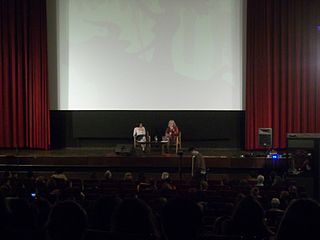A Quote by Malcolm X
Eleanor Roosevelt could easily have told negroes the deceitful maneuvering of the United States government that was going on behind the scenes. She never did it. In my opinion she was just another white woman whose profession was to make it appear that she was on the negro's side. You have a lot of whites who are in this category. Therefore, they have made negro loving a profession.
Related Quotes
I think that Eleanor Roosevelt really learned about the limits of power and influence from Arthurdale. She could not make some things happen. And she particularly learned that she could not, just because she was nominally in charge, she could not change people's hearts and minds; that a very long process of education would result before race was on the national agenda. And it really did move her into the racial justice arena with both feet. She came out fighting.
I will always remember my delight when Mrs. Georgia Gilmore - an unlettered woman of unusual intelligence - told how an operator demanded that she get off the bus after paying her fare and board it again by the back door, and then drove away before she could get there. She turned to Judge Carter and said: "When they count the money, they do not know Negro money from white money.
I think that, very often there's a pain that's just too painful to touch. You'll break apart. And I think her mother's death and disappearance and abandonment was something she just never could deal with. Eleanor Roosevelt, when she's really very unwell in 1936, she takes to her bed. She has a mysterious flu.
Eleanor Roosevelt loved to write. She was a wonderful child writer. I mean, she wrote beautiful essays and stories as a child. And Marie Souvestre really appreciated Eleanor Roosevelt's talents and encouraged her talents. Also, she spoke perfect French. She grew up speaking French. She's now at a french-speaking school where, you know, girls are coming from all over the world. Not everybody speaks French.
A friend, who's a psychologist, told me about a patient once: a woman who was well educated, had a good job, a house and a loving husband. "I did everything right in my life," said the woman. "But I'm still not happy." She never did what she herself wanted, but what she believed society expected from her.
Eleanor Roosevelt's very helpful to a lot of children who cannot speak French, who do not write well. And Marie Souvestre is fierce. She tears up students' papers that are not, you know, perfect. And Eleanor Roosevelt goes around, again, being incredibly helpful to children in need, children in trouble. And her best friends are the naughtiest girls who are in trouble. And she is a leader. And she is encouraged to be a leader. And everybody falls in love with her. She's a star.
Just like Marilyn Monroe is a lot of girls' idol, that's how I feel about Dorothy Dandridge. And she any Marilyn were very close friends. She went through a lot, and people told her that she couldn't do certain things, but she didn't let that bother her. She said in her mind that she was going to do them and that nothing was impossible, and she did it. It was so sad... She died from drugs, and drinking as well.
A lot of people say that Eleanor Roosevelt wasn't a good mother. And there are two pieces to that story. One is, when they were very young, she was not a good mother. She was an unhappy mother. She was an unhappy wife. She had never known what it was to be a good mother. She didn't have a good mother of her own. And so there's a kind of parenting that doesn't happen.
It's interesting to me that really one of the first things she [Eleanor Roosevelt]did as First Lady was to collect her father's letters and publish a book called The Letters of My Father, essentially, hunting big game, The Letters of Elliott Roosevelt. And it really was an act of redemption, really one of her first acts of redemption as she entered the White House. She was going to redeem her father's honor. And publishing his letters, reconnecting with her childhood really fortified her to go on into the difficult White House years.
If I did see a white man who was willing to go to jail or throw himself in front of a car in behalf of the so-called "negro cause," the test that I'd put to him, I'd ask him, "Do you think negro, when Negroes are being attacked they should defend themselves even at the risk of having to kill the one who's attacking them?" If that white man told me, "Yes," I'd shake his hand.
Every woman is multifaceted. Every woman has a switch, whether she's going to be maternal, whether she's going to be a man-eater, whether she has to kick ass, whether she has to be one of the boys, whether she has to show the guys that she's just as smart or smarter, she's just as talented or creative. Women suppress a lot of their sides.
...fact was she knew more about them than she knew about herself, having never had the map to discover what she was like. Could she sing? (Was it nice to hear when she did?) Was she pretty? Was she a good friend? Could she have been a loving mother? A faithful wife? Have I got a sister and does she favor me? If my mother knew me would she like me? (140)





























